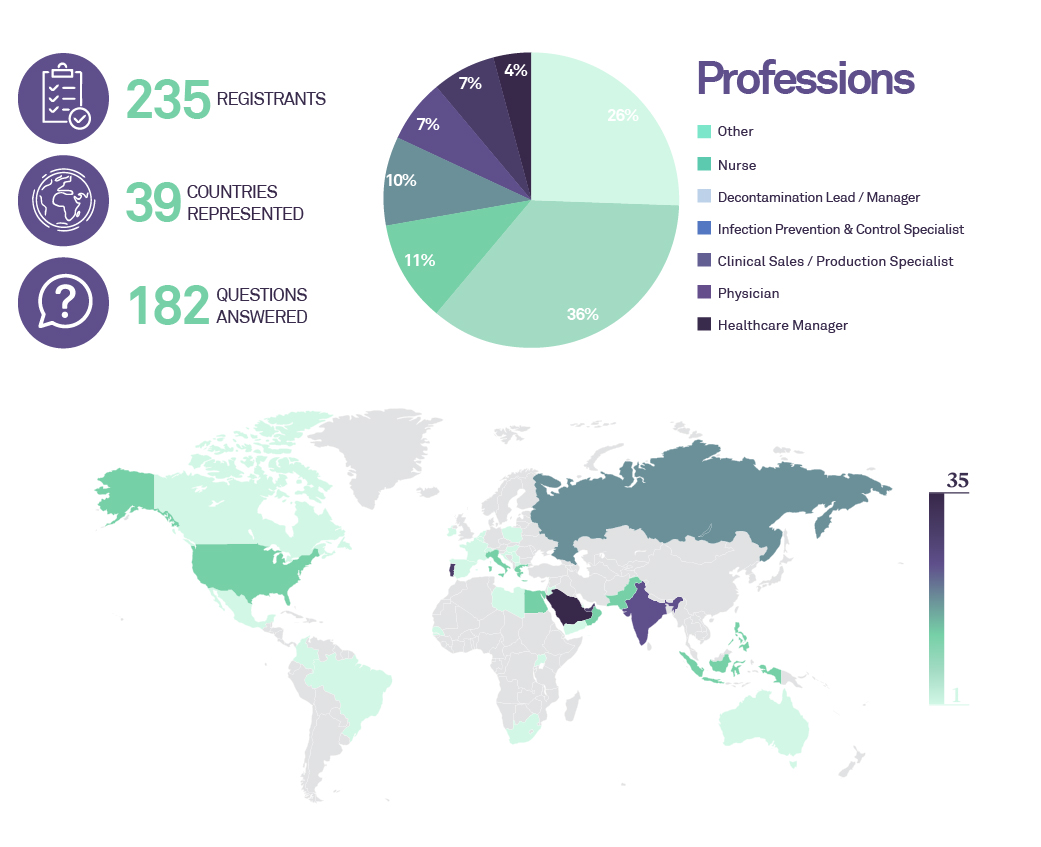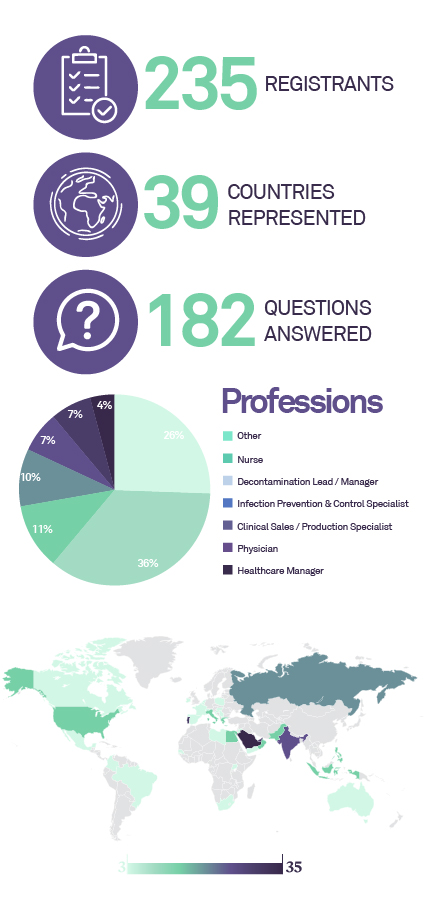During the first webinar, Professor Francesco Venneri will kick off the series by giving a general overview of Medical Devices (MD) Reprocessing Efficiency impact in Healthcare. The presentation will start with the Impact of Healthcare-Associated Infections (HAIs) on healthcare. Furthermore, the importance of MD reprocessing in the prevention of Surgical Site Infections (SSIs) will be presented as well as definitions and perspectives of efficiency in the healthcare sector. Lastly, its impact and optimization strategies will be shared.

HAIs have a strong impact on healthcare systems worldwide and its effects are clearly seen in terms of patient safety, hospital stay, financial impact on management costs, malpractice issues and reputation. A survey of the state of the art on dealing with HAIs and how to lower incidence rate is the core issue of hospital quality and patient safety programs along with the role of HAIs prevention and control related to MD Reprocessing.
MD reprocessing has cost-efficacy measurable parameters which yield results on the entire process of diagnostics and treatment and it is important to underline the precise effect of each reprocessing phase under an economical impact and its key goal in patient safety and risk management. One of the areas of impact is surely the reduction in SSI incidence
Healthcare systems will be measured in the future according to three major parameters impacting efficiency which are affordability: a major concern for social acceptance; sustainability: an economical challenge for many services worldwide and value-based healthcare which is a fundamental parameter in understanding outcomes on a added value basis and address implementation towards giving healthcare a measurable value to be actually seen and felt by all stakeholders.
The efficiency of MD reprocessing has an impact on all healthcare systems beginning from patient safety to professionals’ well-being. A consequence of a strong impact factor as efficiency is seen on the end-results of the entire process up to the patients’ end. These goals are to identify optimization strategies among both industry and healthcare decision makers; among these strategies a major role is represented by accreditation and certification of the entire process. Accreditation agencies around the world such as JCAHO are focusing their main evaluation processes on the goals of reducing HAIs impact and effects on patient safety and retaining of medical malpractice claims and lawsuits. These measures are achieved through the assessment of specific requisites of HAI prevention and control such as hand hygiene measures for both workers and visitors and patients as well; microbiological surveillance and diagnostic and antimicrobial stewardship as milestones for incidence reduction.
This is the first webinar dedicated to “Medical Device Reprocessing Efficiency impact in Healthcare: an overview”, presented by ASP Continuous Education.
23rd MARCH 2023


• Emergency medicine and trauma surgeon.
• Clinical Risk Manager Florence Healthcare Service –Italy
• Member of Tuscany Regional Center for Patient Safety and risk management
• Secretary General of The Italian Network For Safety in Healthcare (INSH) – Italian Branch of ISQua
• Italian Ministry of Health Consultant for Sentinel Events analysis
• Scientific consultant for Patient Safety Issues of the Italian Society of Digestive Endoscopy
• Professor of Clinical Risk Management University of Florence School of Medicine and Nursing.


MESSAGES
- Optimization of MD reprocessing through training and increase in awareness among all healthcare workers is the main goal of the upcoming future.
- Strategies are to be supported and among these accreditation and quality certification surely may be an added value.
- Outcomes are to be measured on a value-based healthcare basis.
- Circular economy and its links to the fields of HTA, Medical Device reprocessing and economy in healthcare are key topics for future implementations


